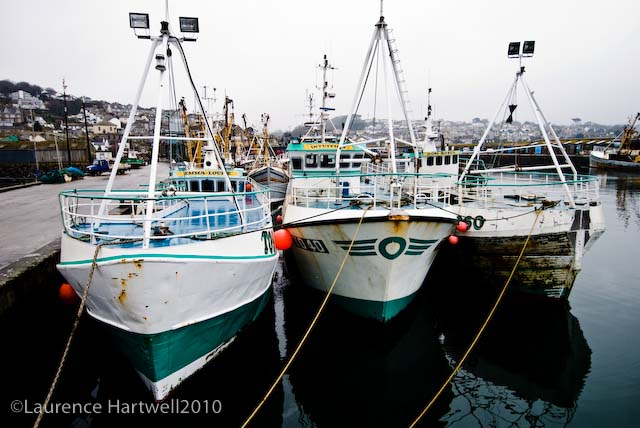Two quotes from the local boys stood out addressing Monty's battles with the elements, "I know the tides and I know the wind" and, "it's all part of the game"........
and up pops the first of four crabs, hardly enough to make a dent in the 15Kg in total he needs to keep the shellfish buyer happy.......
things look better during the second trip, when the pots have had a three day lay owing to weather, Monty bags his first 'blue'.......
and back ashore just manages to scrape up enough kilos of crab to land......
back home, doing the maths and adding up the fixed costs things are looking bleak in the early days.....
struggling with making a wage Monty decides to see how it is done aboard the Scorpio.......
but as the weather turns so does his stomach......
after a short bout of hanging over the side calling for his pals Hughie and Arthur, Monty gets back on his feet......
but only for a short while when he dramatically succumbs to a severe bout of yawning and dangerously passes out on deck......
determined not to be put off he ventures forth once again for a spot of tangle netting and picks up his first monk
in next week's episode he takes a trip across the channel to see why the French prize these fish so highly......
and looks at a very different fish eating culture.




















